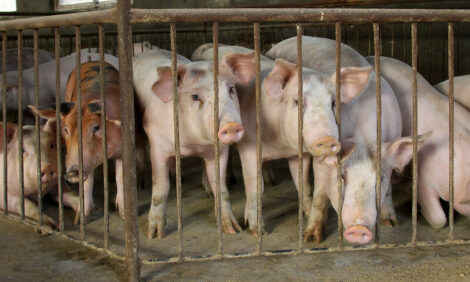



Broadening Feedstocks Eligible for RFS
US - US Representative Pete Olson (Texas) is introducing bipartisan legislation to increase competition, stabilise food prices and enhance American energy security and global competitiveness. The RFS was designed to reduce the need for imported oil, but the unintended consequences have resulted in escalated food and feedstock prices by diverting food crops to ethanol production.
"It's long past time for Congress to address the failed RFS," Rep. Olson said. "The RFS focus on corn ethanol has translated into higher feed costs for livestock producers and higher food costs for working families. While Congress considers eliminating the RFS altogether, we should in the meantime allow greater participation and competition under the programme. That will benefit farmers, businesses and consumers."
National Cattlemen’s Beef Association(NCBA) President Bill Donald said: “NCBA supports Congressman Olson’s efforts to allow the market to drive our nation’s renewable fuels policies by allowing more competition in the Renewable Fuel Standard.
From marketing to renewable fuels – cattlemen support market-based principles that minimise the federal government’s direct involvement in the cattle industry. Unfortunately, the RFS has allowed the federal government to mandate corn-based ethanol production volumes, which has put cattlemen and other end-users of corn at a competitive disadvantage. Congressman Olson’s bill is a step in the right direction.”
National Chicken Council (NCC) Vice President of Communications said: "The NCC supports broadening the eligibility requirements of a portion of the mandated ethanol volumes to allow a wider variety of sources to be used for production. NCC commends Representative Olson for his leadership on this issue.
"Because ethanol today is derived almost completely from corn, this bipartisan legislation would help relieve some of the pressure being placed on corn and help chicken producers who have been struggling with high feed costs. This alternative source would be especially important in years like this one when corn is in limited supply with only a marginal carryover projected for ending stocks."
Grocery Manufacturers Association (GMA) Director of Energy & Environmental policy Geoff Moody said: "We have made important progress in the fight against using food for fuel, most recently with the expiration of federal ethanol subsidies and trade protection. But to ensure that we are able to meet our nation’s growing energy needs, we must embrace innovative new technologies, which is what Congressman Olson’s bill would facilitate."
Olson’s bill would establish Domestic Alternative Fuel as an independent fuel category and list it within the regulations that specify volume obligations to meet the RFS. The artificial market created by the RFS mandate will require 36 billion gallons of ethanol in 10 years, more than doubling the volume required in 2011. An estimated 40 percent of the US corn crop was used for ethanol production last year, resulting in diminished supplies for livestock and food producers and higher corn prices.
The Olson bill would enhance America’s energy security and global competiveness by expanding the eligibility requirements within the RFS to allow ethanol derived from alternative feedstocks, such as natural gas and coal, to compete with corn based ethanol. Broadening the number of feedstocks eligible within the RFS will enable greater capital investment in research and development and promote the construction of new domestic production facilities, creating American jobs.








